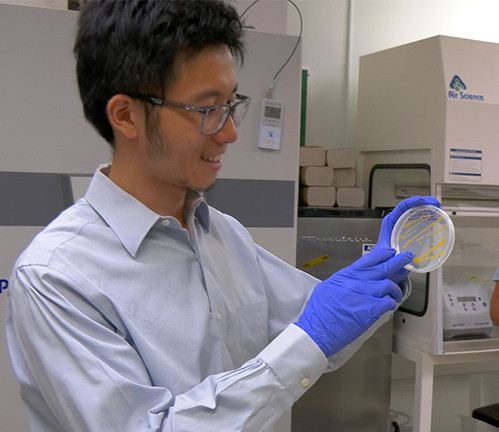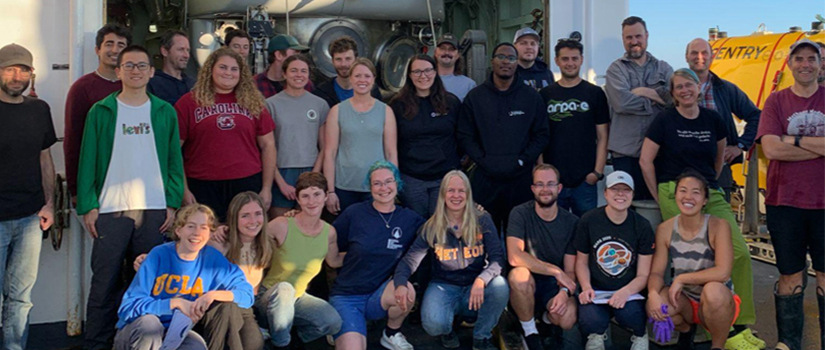Hunting ocean fungi rather than ocean liner wreckage, Julianne McHenry came up with sea floor samples key in ongoing research project
Last summer, Julianne McHenry dove 600 meters below the ocean surface aboard Alvin, the first manned underwater craft to explore the Titanic wreckage nearly 40 years ago.
Her mission was to retrieve sediment and water samples from the little-explored sea floor that will contribute to new ocean research as part of her job in a marine ecology lab at the University of South Carolina.
McHenry said the experience was like entering another world.
“It felt like going through space and seeing stars, but the ‘stars’ were bioluminescent organisms,” she said.
McHenry always loved the ocean. While spending countless hours scuba diving, sailing or playing at the beach, she knew she wanted to make a career observing the ocean. And she’s done just that.
The 2023 marine science graduate is part of a team of researchers working to reimagine the way we think about marine fungi. She works in the Marine Microbial Ecology Lab, led by geoscientist and assistant professor Xuefeng (Nick) Peng in the School of the Earth, Ocean and Environment.

Peng says the samples the team collected will provide insight into the way the fungi behave, their roles in ocean food webs and their impacts on Earth’s climate.
“Fungi are well-known decomposers on land, but their role in the ocean is often overlooked,” Peng says. “They likely play a crucial part in carbon and nitrogen cycling, which affects our environment, including greenhouse gas production.”
To better understand ocean ecology, the researchers study fungi collected from deep-sea sediments where oxygen is depleted. Using the samples McHenry collected on her dive and some collected from other marine sites, they’ll explore the interactions these fungi have with other members of the underwater microbial community.
By observing how the fungi behave in various environmental conditions and how they produce greenhouse gases, their discoveries can help other scientists predict how to respond to future climate change such as warming and ocean acidification.
In addition, the findings may have implications for scientific explorations beyond our oceans and even our world. Because the fungi survive in low or no oxygen, they could potentially survive in other extreme environments, such as space.
“If NASA hopes to launch to Mars, they’ll need biological organisms to sustain life, and maybe fungi would be part of that microbial community essential to survival,” Peng says.
Peng’s research efforts have garnered him national attention, and just this year he was named a winner of the Simons Foundation's 2024 Early Career Investigators in Aquatic Microbial Ecology and Evolution Award. The award will support his ongoing research projects and future ones as well.
For McHenry, the experience in the Peng lab has reinforced a lesson she learned during her undergraduate studies: shoot your shot and go for opportunities even if they seem out of reach.
During her time as an undergraduate at USC, she had been looking for a research position when the COVID-19 pandemic hit. When many labs shut down or cut staff, McHenry asked her friends for advice and they recommended she speak to her advisor, who happened to be Peng.
“I told him that I’d wash dishes, anything to get my foot in the door,” McHenry says. Earning a spot in the marine microbial ecology lab jumpstarted her lab skills and her eventual career during a time when she didn’t think it possible.
Going forward, McHenry plans to put the knowledge she gained in the lab to use in graduate school and hopes to one day work with coral reefs. It’s all thanks to her willingness to take risks in pursuit of her dream career.
“I didn’t set out initially planning to study microbes, but it ended up taking me to the bottom of the ocean and giving me the opportunity of a lifetime.”
